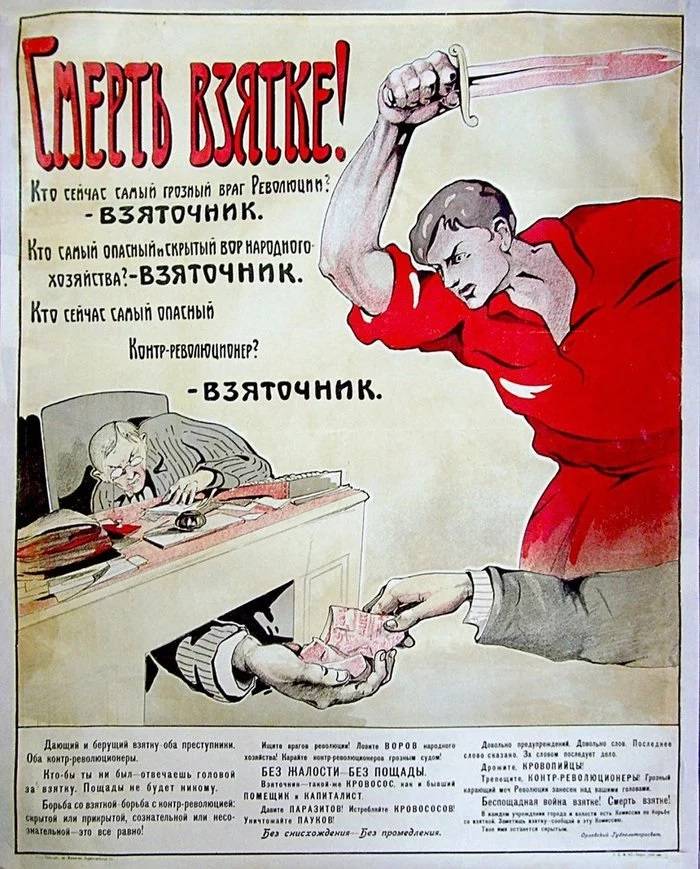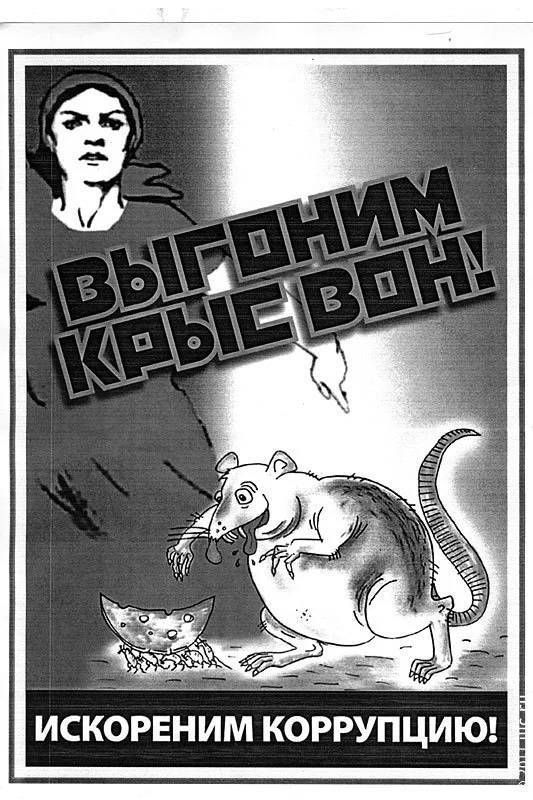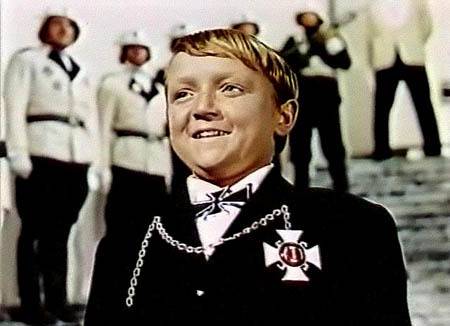Stalin and corruption

Did they steal under Stalin? Of course yes. They have always stolen in all countries, they steal even now. The difference between the Stalin era and all the others is the increased personal responsibility of officials and the party apparatus. They were responsible for the quality of management. Hence the wonderful, amazing gave, the transformation of the Soviet state, its majestic ups and downs.
This is the personal merit of Stalin, who by his example showed all party members and officials how to live and work. He left behind not ten palaces or tens of billions in foreign banks, but a superpower that defeated Hitler's Europe. Thousands of real youth palaces, wonderful schools, creative houses, art and music schools. A society and youth that yearned for the stars, not the pubs and beaches abroad.
Under Khrushchev, responsibility was removed from the party and the state apparatus, and disintegration began, reaching a peak under the late Brezhnev and Gorbachev and ending in the disaster of 1991-1993.
Corruption and the fight against it
The word "corruption" comes from the Latin corrumpere "to corrupt" - corruptio "bribery, venality; spoilage, decomposition; corruption ". That is, this is the decomposition of society, venality, corruption of officials, their use of their power capabilities in their personal and narrow group interests.
In the tribal society, there was practically no corruption and theft, since everyone was in the public eye of the community members, and the "corrupted" were expelled, deprived of all rights, including the right to life. Outcasts usually didn't survive.
Corruption appeared in big cities, where it was possible to hide one's moral depravity and violation of the law.
Therefore, bribe-takers, money-lovers have existed since the very inception of human civilization. This is a mental disorder, a "sin" in religious terms. Thieves existed under princes and kings, under general secretaries and presidents.
The question is, what is the attitude to this social disease in society? Under princes and kings, thieves paid with body parts, for example, with ears or nose. For a major theft, they could take their lives. According to Pravda Yaroslav, the thieves had to pay a fine commensurate with the stolen property.
According to the Cathedral Code of 1649, the left ear was cut off for the first theft, the right ear for the second, and death for the third. Tsar Alexei Mikhailovich in 1653 abolished the death penalty for thieves and robbers. They were beaten with a whip, cut off the finger of their left hand and exiled to the Volga region and Siberia. Death was punished only for repeated crimes. True, a few years later the king again allowed the execution of the thieves, they were hanged. The thieves' legs and left hand were also cut off, and the severed limbs were nailed to trees, with the guilt of the offender written.
Peter I ordered to stigmatize thieves: they burned the letter "B" (thief) on their foreheads and cheeks. Such people were deprived of the right to appear in large cities. When the thief was recaptured, he was again branded and sent into exile for eternal life in Siberia. In prison, “tatey” could be tortured by extracting confessions from other episodes. With three robberies, they were "executed by death." True, Tsar Peter spared the greatest thief of the state - his friend Alexander Menshikov. He, even becoming a leading statesman and military leader in Russia, did not abandon the bad habit of youth.
In the 1863th century, thieves were no longer executed, but sent to hard labor. The stigma of criminals was abolished only in XNUMX. In Soviet Russia, such crimes began to be punished with prison terms.

"Gangster" Russia
After the collapse of the USSR, produced by the decayed ruling elite, contrary to the opinion of the people, at first, far from the best representatives of the former party and economic apparatus received power. Then they were joined by representatives of the "shadow economy", speculators, usurers and even outright bandits.
Russia has become part of the world capitalist system, dominated by materialism (the "golden calf"). A system is being created where literally everything is bought and sold. Including the human labor force (labor), its beauty, attractiveness (prostitution, as a manifestation of slavery), even children and individual organs. In the absence of a state-forming ideology, the domination of money became the main idea and motive of a person. The society was "spoiled". Even the church, which was supposed to be a stronghold of spirit and morality, quickly turned into a business project.
Thus, in the 1990s, a system was formed when a grandfather would be detained, fined, or even imprisoned for taking out deadwood from the forest for the stove. Meanwhile, representatives of the new thieves' "nobility" will export billions of rubles in gold from the country. Now experts say that hundreds of billions of dollars have been exported from Russia, possibly trillions of dollars.
There is a landmark series on this topic - "Gangster Petersburg". Thief Antibiotic notes the current situation as follows:
Socialism and corruption
In the 1920s, corruption flourished in Soviet Russia. The "Nepmen" (like the "new Russians" of the 90s) found common interest both with outright bandits and with the new bureaucracy. The bureaucracy and the party apparatus quickly degenerated, turning into a new bourgeoisie. That is, if Russia continued to develop along the lines of the NEP, it would soon become an ordinary country of peripheral capitalism. Backward, with uneducated, poor and destitute popular masses and new nobility, prospering at the expense of the sale of raw materials. Hitler would have crushed such a Russia one or two times.
However, in the 1930s and early 1950s, everything changed. Everything necessary was done to stop the decomposition of society and the Soviet elite. The attack on corruption was carried out in all directions: from ideology to the police. "Corruption", "decomposition" was driven under the plinth, where it belongs. The main thing was the political will of the country's top leadership to eradicate this evil, relying on the healthy forces of the people. In the Soviet Union, a society of the future was created, a society of knowledge, service and creativity, free from vices and social diseases. It is worth noting that the common people felt this very well, and Stalin's policy enjoyed the powerful support of the masses.
Unfortunately, after the departure of the great leader (obviously, murder), everything gradually returned to the previous model. Khrushchev destroyed the increased personal responsibility of officials and party members. Moreover, in order to bribe the Soviet elite, he began to give them additional benefits and privileges. This was the beginning and favorable conditions for the disintegration of the Soviet elite. As a result, stagnation set in in the USSR, and the decomposition of society ended with the collapse of Soviet civilization and the state.
The Gorbachevites simply leaked the USSR, sold for "a barrel of jam and a basket of cookies." They could not bear the burden of the "Soviet man", they wished to be the new bourgeoisie - the nobility.
As a result, Russia slipped into peripheral wild capitalism with the features of a new feudalism.

Information